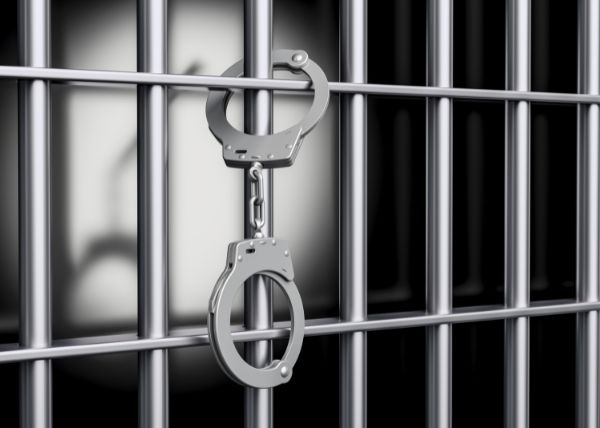
Call Now For A Free Consultation:

Call Now For A Free Consultation:

What legal options do you have if a loved one dies while in police custody or jail? In such challenging and distressing situations, seeking justice can be a complicated process that requires expert guidance and support. At Justin Palmer Law Group, we navigate police misconduct cases, ensuring that families affected by such tragedies receive the legal representation and support they need during challenging times. Let's delve into the complexities of seeking justice in cases where someone dies in jail and the role of legal professionals in advocating for victims of police misconduct.
In California, prison inmates retain certain fundamental rights, despite their incarceration. These rights are protected by both state and federal laws to ensure humane treatment and basic dignity. Understanding these rights is crucial, particularly in cases where inmates suffer harm or death while in custody. Here are key rights that inmates in California are entitled to:
Inmates have the right to be free from cruel and unusual punishment. This includes the right to adequate food, clothing, shelter, and medical care. Prison officials are required to provide conditions that meet basic human needs.
Inmates are entitled to necessary medical treatment for both physical and mental health conditions. This includes access to medications, treatments, and emergency care. Failure to provide adequate medical care can constitute a violation of an inmate’s rights.
Prison officials must take reasonable measures to protect inmates from violence and harm. This includes protecting inmates from other inmates, as well as from abusive conduct by prison staff. Ensuring a safe environment is a fundamental responsibility of prison authorities.
Inmates have the right to due process in disciplinary proceedings. This means they must be given notice of the charges against them, an opportunity to present their case, and a fair hearing. Arbitrary punishment without due process is prohibited.
Inmates have the right to access the courts and legal resources. This includes the ability to consult with attorneys, access legal materials, and file lawsuits. Restrictions on legal access must be reasonable and not impede an inmate’s ability to seek justice.
Inmates have the right to communicate with family, friends, and legal representatives. This includes the right to send and receive mail, make phone calls, and have visits, subject to reasonable security restrictions.
Inmates who exercise their legal rights or report misconduct should be free from retaliation by prison staff. Retaliatory actions, such as increased punishment or denial of privileges, are prohibited and can be grounds for legal action.
Inmates have the right to file grievances and complaints about their treatment or conditions within the prison. Prisons are required to have a formal grievance process in place and to address complaints in a timely and fair manner.
If a loved one dies in jail, understanding these rights can be crucial in determining whether there has been a violation of their civil rights and whether legal action can be taken. At Justin Palmer Law Group, we are committed to advocating for the rights of inmates and their families. If you believe your loved one’s rights were violated, contact us for a consultation to discuss your legal options.
The death of a loved one in jail is a traumatic and devastating experience, raising serious questions about the circumstances and whether the death could have been prevented. In California, families may have the legal right to sue if an inmate dies due to negligence, misconduct, or violations of their constitutional rights. Here’s what you need to know about pursuing a lawsuit for a death in jail:
To sue for a death in jail, it’s essential to establish that the jail or its staff were liable. Liability may arise from various forms of misconduct or negligence, including failure to provide adequate medical care, excessive use of force, lack of supervision, or unsafe conditions within the facility.
Suing a jail or its staff can be challenging. Government entities often have significant resources and legal defenses at their disposal. Additionally, proving negligence or misconduct requires substantial evidence and expert analysis.
Jail staff and officials may be protected by qualified immunity, which shields government employees from liability in certain circumstances. Overcoming this defense requires demonstrating that the staff violated clearly established rights that a reasonable person would have known.
A successful lawsuit can result in compensation for the family, covering funeral expenses, loss of companionship, and other damages. Beyond financial compensation, holding the responsible parties accountable can lead to changes in policies and practices, potentially preventing future tragedies.
At Justin Palmer Law Group, we are dedicated to seeking justice for those who have lost loved ones in jail. Our experienced attorneys understand the complexities of these cases and are committed to fighting for your rights. If you believe that your loved one’s death in jail was due to negligence or misconduct, contact us for a consultation. We will review your case, explain your legal options, and work tirelessly to hold the responsible parties accountable.

Determining liability for wrongful deaths in prison can be complex, as multiple parties may be held accountable depending on the circumstances surrounding the death. Here are the primary parties that could be liable for a wrongful death in prison:
If you believe that your loved one’s death in prison was due to negligence or misconduct, contact us for a consultation.
Unexpected prison deaths can arise from a variety of causes, often reflecting broader issues within the correctional system. Understanding these causes is crucial for identifying potential areas of negligence or misconduct. Here are some common causes of unexpected prison deaths:
Inadequate medical care is a leading cause of unexpected deaths in prisons. This can include failure to diagnose or treat serious medical conditions, delays in providing medical attention, insufficient medical staff, and lack of access to necessary medications and treatments. Chronic illnesses, untreated infections, and preventable medical emergencies can all lead to fatalities.
Prisons can be violent environments where inmates are at risk of assault by fellow inmates or even by correctional officers. Lack of supervision, overcrowding, and inadequate security measures can contribute to violent incidents resulting in severe injuries or death.
Suicide is a significant cause of death among inmates, often linked to mental health issues exacerbated by the conditions of confinement. Inadequate mental health care, isolation, and lack of support for at-risk individuals can increase the likelihood of suicide. Prisons are required to identify and monitor inmates who may be suicidal and provide appropriate interventions.
The presence of illegal drugs within prison facilities can lead to overdose deaths. Issues such as insufficient screening of visitors and staff, corruption, and lack of effective substance abuse programs can contribute to the availability of drugs in prisons.
Excessive or inappropriate use of force by correctional officers can result in serious injuries or death. This includes physical restraint techniques, use of weapons, and other aggressive tactics that may not be justified or are applied improperly.
Prisons are high-risk environments for the spread of infectious diseases such as tuberculosis, hepatitis, and COVID-19. Overcrowding, poor sanitation, and inadequate medical care can exacerbate the spread of these diseases, leading to fatal outcomes.
Neglect of basic needs, such as food, water, and shelter, can result in death. Additionally, unsafe conditions within the facility, such as faulty equipment, fire hazards, and lack of emergency response plans, can contribute to unexpected deaths.
Extreme temperatures within prison facilities, whether due to poor heating or cooling systems, can cause heat exhaustion or hypothermia. Vulnerable inmates, such as the elderly or those with pre-existing health conditions, are particularly at risk.
If you suspect that negligence or misconduct contributed to the death of a loved one in prison, contact a police misconduct lawyer.
When a loved one dies in prison due to negligence, misconduct, or other wrongful actions, certain individuals have the legal right to file a wrongful death lawsuit. These lawsuits aim to seek justice and compensation for the surviving family members and hold the responsible parties accountable. Here’s a breakdown of who can file a prisoner wrongful death lawsuit:
At Justin Palmer Law Group, we understand the pain and frustration of losing a loved one in prison. Our dedicated team is here to help you navigate the legal complexities and fight for the justice and compensation your family deserves.
Experiencing the death of a loved one in jail or prison is an incredibly distressing and challenging situation. If you find yourself in this tragic circumstance, here are steps you can take to navigate this difficult time:
Losing a loved one under such circumstances is devastating, and seeking justice can be a daunting task. At Justin Palmer Law Group, we are here to support you through this challenging time.
Navigating the complexities of a wrongful death case involving a loved one who died in jail or prison requires expertise in both legal strategies and the unique challenges of correctional facilities. At Justin Palmer Law Group, our experienced team of prison wrongful death lawyers is committed to advocating for families who have suffered such devastating losses. Here’s how our firm can assist you:
We specialize in prison litigation and understand the intricate laws and regulations governing correctional facilities. This expertise allows us to effectively analyze your case and determine the best legal approach.
We conduct comprehensive investigations into the circumstances surrounding your loved one’s death. This includes reviewing medical records, witness statements, surveillance footage, and facility policies to uncover any signs of negligence or misconduct.
We identify all parties potentially liable for the wrongful death, whether it involves medical staff, correctional officers, facility administrators, or third-party contractors. Establishing liability is crucial for building a strong case.
We develop a tailored legal strategy based on the specifics of your case and your family’s goals. Whether negotiating settlements or litigating in court, we advocate vigorously on your behalf to achieve justice and fair compensation.
We are dedicated to protecting your rights and interests throughout the legal process. We provide compassionate support and guidance, keeping you informed at every step and advocating for accountability and reform within the correctional system.
We pursue maximum compensation for your family’s losses, including medical expenses, funeral costs, loss of income, and emotional pain and suffering. Our goal is to secure fair and just compensation while holding responsible parties accountable for their actions.
We understand the emotional toll of losing a loved one under such circumstances. Our team provides compassionate counsel, offering support and guidance to help you navigate the complexities of legal proceedings and cope with grief.
If your loved one has died in jail or prison and you suspect negligence or misconduct played a role, contact Justin Palmer Law Group for a confidential consultation. Our dedicated prison wrongful death lawyers are here to listen to your story, evaluate your case, and provide the legal support you need to seek justice. Together, we can work towards holding those responsible accountable and securing a brighter future for you and your family.
If your loved one dies in prison in California and you wish to file a claim, there are specific steps and considerations to keep in mind regarding where and how to file. In California, if you intend to pursue financial compensation for the death of a loved one in a state correctional facility, you typically file a claim with the California Victim Compensation Board (CalVCB).
The CalVCB administers the Victim Compensation Program, which provides financial assistance to victims of crime, including certain eligible family members of individuals who die as a result of a crime or criminal conduct. This includes deaths occurring in state correctional facilities due to alleged negligence or misconduct.
Depending on the circumstances surrounding your loved one's death, there may be other legal avenues to pursue, such as filing a civil lawsuit against responsible parties. Your attorney can advise you on the best course of action based on the specifics of your case.
After you file a prisoner's wrongful death claim, several steps typically follow in the legal process. Here’s an overview of what happens next:
If you are seeking justice for the wrongful death of a loved one in jail, attorney Justin Palmer is here to help. With years of experience in handling prisoner's wrongful death claims and civil lawsuits, Justin understands the complexities of these cases and is committed to fighting for the rights of his clients. Contact Justin Palmer Law Group today for a free consultation to discuss your case and explore your legal options. Remember, you have the right to seek justice and hold those responsible for your loved one's death accountable. Let Justin Palmer be your advocate in seeking the closure and compensation you deserve.
Attorney Advertising | Prior results do not guarantee a similar outcome. The information on this website is for general information purposes only. Nothing on this site should be taken as legal advice for any individual case or situation. This information is not intended to create, and receipt or viewing does not constitute, an attorney-client relationship. This site is protected by reCAPTCHA and the Google Privacy Policy and Terms of Service apply.